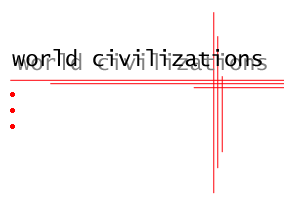

| In the four sonnets below, Michelangelo is discussing his passionate love first for Gherardo Perini, whom he met in 1522, and later for Tommaso de' Cavalieri, whom he met and fell in love with in 1534. It seems that Cavalieri rebuffed Michelangelo's affections, partly because he believed that they had a strong sexual content, which was probably true. The three sonnets explore three different conflicting emotions over homosexual desire in a culture that thoroughly condemned both homosexuality and explicit representation of homosexual desire. The first sonnet, written to Cavalieri, defines his desire in the Neoplatonic language of love which binds two people in a desire for God and eternity. The fundamental argument of the sonnet is that his desire is not carnal, but rather spiritual and chaste. The second sonnet, also written to Cavalieri, deliberately foregrounds the fact that Michelangelo's passion and desire cannot be spoken of, but must be referred to in almost absurd ellipses and allusions. The third sonnet, left unfinished, sums up the relationship between Michelangelo and Gherardo Perini. It is a standard set of antitheses commonly used to define the ultimately unsatisfactory completion of a love. Finally, the last sonnet, left incomplete, deals with Michelangelo's sense of shame and sin. This is a typical sonnet motif in sonnet cycles dealing with love, but it takes on an added poignancy when used to express homosexual desire. |

|
If one chaste love, if one divine compassion, If one destiny is equal for two lovers, If one hard fate of the one is felt by the other, If one spirit, if one will guides two hearts; If one soul in two bodies makes itself eternal, Lifting both to heaven with a single wing, If Love in one blow and one golden arrow The hearts in two chests can burn and tear; If the one loves the other and neither loves himself, With one pleasure and one delight, to such a measure That one and the other desire to reach a single end: Thousands and thousands would not make a hundredth Of such a knot of love, or of such a faith: And only anger could break and untie it. |
|
You know that I know, my lord, that you know That I draw close to take pleasure in you, And you know that I know that you know who I am; So why do you delay our acknowledging each other? If true is the hope that you give to me, If true is the great desire that I've been given, Let the wall between them be broken down, For doubly violent are concealed woes. If I only love in you, my dearest lord, That which you love in yourself, do not scorn Because one spirit has fallen in love with another. That which I desire and learn from your beautiful face Is imperfectly comprehended by human minds: Who wishes to know it must first die. |

|

|
Over here it was that my love stole from me, In his mercy, my heart and, farther on, my life. Here with his beautiful eyes he promised me help, And with the same eyes here he stole it back. Over here he bound me and here released me; For myself I wept here, and with infinite sorrow From this rock I saw him leave, He who stole myself from me and never turned back. |
|
I live in sin, dying to myself I live; Life is no longer mine, but belongs to sin; My good is from heaven, my evil I give to myself, From my own unbound will, which has been stolen from me. My freedom is a slave, my divinity has made itself Mortal. Oh, unhappy state! To what misery, to what life I've been born! |

|
Translated from the Italian by Richard Hooker
